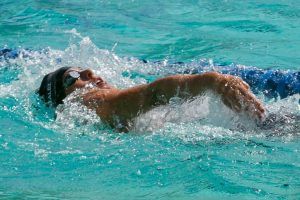
10 Motivational Swimming Quotes to Get You Fired Up
Looking for some awesome swim quotes? Give this list of motivational swimming quotes a look the next time you need to rock and roll in the pool.
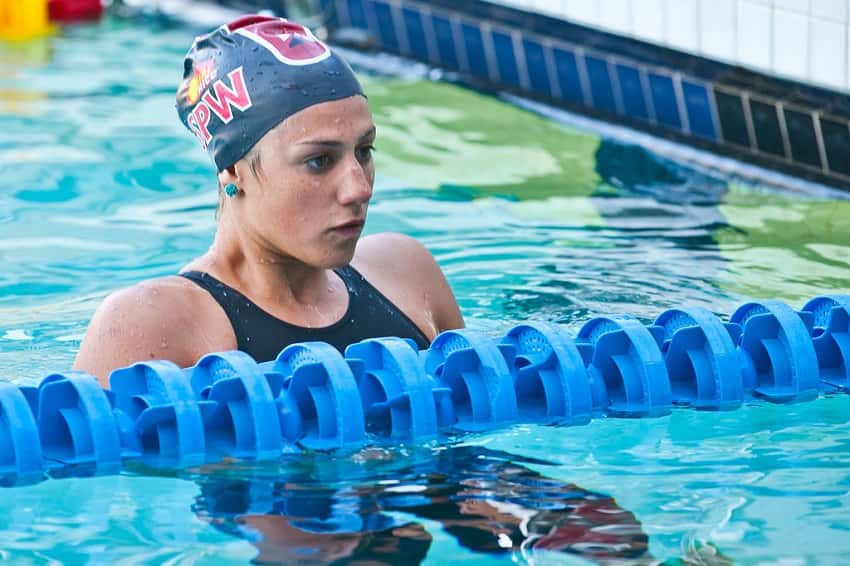
When things don’t go well at the big meet it can be easy to get down on yourself. Here is what you should be doing instead.
You’d been fantasizing about this exact moment for months.
It was destiny, you were due, and today was your moment, your time to shine.
As the ref blew the whistle, and you got up on the blocks and stared down the placid water of your lane, the pool fell quiet.
You hunched over, gripped the blocks so tightly your knuckles turned white and when you exploded out of the starting position it felt like you were being launched off a trampoline through the air.
There is a brief shock at how cold the pool is. Face to the quickly moving black line below you your arms were locked in a streamline so tight the water seemed to fall off you.
The breakout was done with such speed and power that you broke a little too late; unaccustomed to the raw speed it was tough to judge where you were in terms of depth.
No matter.
You were going so fast it hardly made a difference.
You feel light on the water, riding high, the nervous energy taking you through the first couple lengths, while you consciously had to pull back the reigns in order to pace yourself through the rest of the race.
You hurtle into the finish in a cascade of white water, timing the touch perfectly.
Your head whips around, scanning the names on the scoreboard, half-expecting to see “NEW POOL RECORD” or “DID EVERYBODY ELSE SEE HOW FAST THIS KID SWAM?” beside your name…
Only…
The time doesn’t look right.
You squint. Furrow your brow. Peel the goggles from your eye sockets.
See your name…
“Yup, that’s me… That’s my lane…”
But the time…
You wrap both arms on the lane-rope, race to catch your breath, and struggle to grasp the time.
How…?
“How did this happen?”
It’s a slow walk to the warm-down pool.
Bypassing where your team is sitting you get a couple consoling looks from teammates.
“Good swim,” they say.
You hop into the warm-down pool, ignoring the looks from your parents up in the stands, who seem to be conferring with other parents about what had happened.
“I don’t know,” they say with a shrug.
Had you, though?
As you float and slowly swim in the warm-down pool it’s tough not to think the worst things about yourself and your swimming…
If this situation sounds painfully similar it’s because it happens to almost all of us.
Spend more than fifteen minutes watching races at your local swim meet and you will see these thoughts in the body language of swimmers who fall short of their expectations.
And so have just about every other swimmer on the planet regardless of whether they are an Olympic champion or a newbie age-grouper or anywhere in between.
The reason you didn’t achieve your goals isn’t that you stink…
Or that you don’t deserve it…
It’s because your expectations were off.
In other words…
Your self-awareness wasn’t on point.
Self-awareness is tough, sometimes brutal, but improvement is impossible without it.
It’s also a tough skill to acquire.
For nearly all of us we can never truly guesstimate how we are going to perform.
Next to the rare occasion that we completely outdo our expectations are a dozen moments where we fell incomprehensibly short of them.
Self-awareness can also, well….hurt.
Most swimmers don’t have the heart to objectively break down their swimming.
Why?
Because it stings their pride too much to acknowledge that they actually weren’t doing things as well as they imagined.
It’s safer and easier to live in la-la land than it is to confront the realities of how we are actually training in the water.
The road to being self-aware starts with critiquing what you are presently doing.
Instead of simply chalking up that bad swim to “not deserving it” poke around under the hood of your training.
If you really want to get down and dirty I would challenge you to write out your workouts (including rating yourself on the quality of the meters swum, the effort you gave and how engaged you were) for two weeks to really see what you are up to in the pool.
At the end of the two weeks you will have very detailed overview of your swimming.
The consistency and patterns will be a bit of a shock if you have never done this exercise before.
Don’t feel too bad if you see a lot of bad habits dotting your days of training…
If you see that you weren’t really making all that many practices, or that focus levels were low, or that you were sandbagging a lot more sets than you realized, it simply means you have a ton of stuff that you can work and improve.
Being self-aware starts with having a clear and unbiased understanding of what you are up to in the pool.
[Check this post if you are looking for some more guidance on how to properly audit your training in the water.]
Getting feedback only after your big race went down the tubes is not enough.
In those moments coach will typically look you in the eye and remind you of all those practices you missed. The main-sets you abandoned. The tougher intervals you passed on.
And sure, the ache and sting from that swim might launch you into a heightened level of commitment for a period of time, but in order to sustain that wave you need to know that what you are doing is working.
You can get yourself some objectivity through the use of a training log, but power this tool up to the max with regular check-ins and sit-downs with your coach.
After every Saturday practice sit down with your coach for two minutes and go over the week. Remember, the goal is objectivity here, to get an idea of how you are actually training, so keep an open mind.
Yes, you might not always like what he or she has to say, but if you are willing to be open to their assessment of how you are responding to training you and your swimming will be better served.
Unpredictable performances at meet-time are the worst.
We can both agree on that.
And yet, so many swimmers lack the self-awareness it takes to create expectations that are rooted in reality.
We expect to pull a swim out of nowhere at the big meet. We tell ourselves that we’ll show up when it matters. Or that we trained harder and more often than we really did.
Competition simply lays bare what we did in practice.
The key to making the changes necessary for the results you want in competition…
And in practice…
Starts with having the self-awareness necessary to make the right changes.

Olivier Poirier-Leroy Olivier Poirier-Leroy is the founder of YourSwimLog.com. He is an author, former national level swimmer, two-time Olympic Trials qualifier, and swim coach.

Looking for some awesome swim quotes? Give this list of motivational swimming quotes a look the next time you need to rock and roll in the pool.
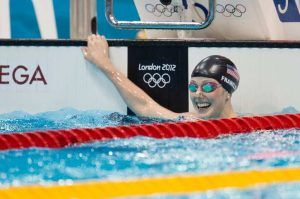
Missy Franklin’s book Relentless Spirit details the triumphs and tribulations on the path to becoming an Olympic champion. Here is a review of the book, along with key takeaways, quotes and highlights…
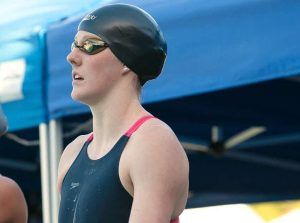
American swim star Missy Franklin captivated the world during her reign as one of the best swimmers on the planet. Here’s how she built her self-confidence going into big swim meets.
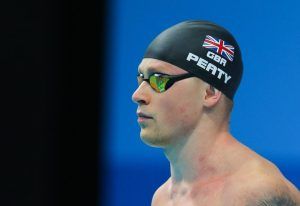
If you want to swim faster and maximize your preparation in the water, make sure you are focused on real solutions and not fake problems.
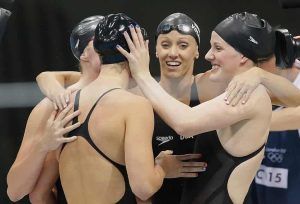
Ever wondered why some swimmers always swim ridiculously fast on relays? Here’s how the kind of motivation you use behind the blocks influences how you perform in the water.
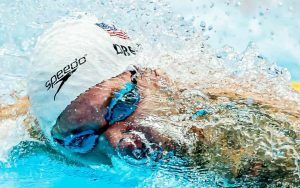
This is the ultimate guide for helping age group swimmers get highly motivated. You are going to learn about some proven techniques and tools that you can start using today to light your motivation on fire. (And keep it burning bright after that first burst of motivation fades away.) If
SITE
SHOP
GUIDES

LANE 6 PUBLISHING LLC © 2012-2024
Join 33,000+ swimmers and swim coaches learning what it takes to swim faster.
Technique tips, training research, mental training skills, and lessons and advice from the best swimmers and coaches on the planet.
No Spam, Ever. Unsubscribe anytime.
